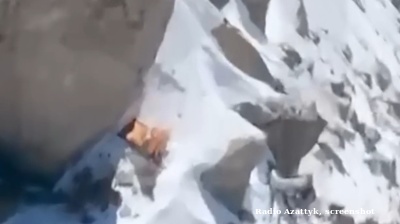Russian Foreign Minister Sergei Lavrov has lauded the Hungarian government's foreign policy as "balanced and pragmatic", in an interview granted to pro-Orban daily Magyar Nemzet. The interview was also translated into Russian and English.
Russia's chief diplomat praised Budapest for maintaining a cooperative stance with Moscow "despite constant pressure from Brussels and NATO". He characterised Hungary's approach as a model of sovereign foreign policy within the EU, highlighting what he described as "constructive relations" between the two countries.
Lavrov used the platform to repeat Moscow's long-standing narratives about the war in Ukraine. He referred to NATO's expansion and military support for Ukraine as key reasons for launching what Moscow still refers to as a "special military operation," saying that the West had left Russia with no alternative.
Russia remains open to a political and diplomatic settlement of the conflict, which must truly be about lasting peace, not merely a ceasefire, he said.
He stated that demilitarisation and denazification of Ukraine, withdrawal of lawsuits, cancellation of sanctions against Russia, and return of assets must be included in any peace agreement.
A sustainable resolution to the conflict is not possible without addressing its root causes, he said, adding that security threats arising from NATO's expansion and Ukraine's potential accession to the alliance must be eliminated.
Equally important, he said, is the protection of human rights in areas remaining under the control of the Kyiv regime, which, according to Lavrov, has systematically sought to eradicate the Russian language, culture, traditions, canonical Orthodoxy and media.
Commenting on claims by Western intelligence agencies and political leaders regarding alleged Russian plans to invade Europe, Lavrov dismissed such accusations, saying those making them "know more about such plans than we do." "They continuously demonise our country through manipulations in the information space. They are trying to force the thesis of the Russian leadership's supposed imperial ambitions into the public consciousness," he emphasised.
He argued that Western leaders are deliberately creating an enemy image of Russia to deflect attention from unresolved domestic issues.
Lavrov claimed that, alongside ethnic Russians, other minority groups, including Hungarians, Romanians, Poles, Bulgarians, Armenians, Belarusians and Greeks, had been subjected to "violent Ukrainisation." According to the minister, Budapest is well aware of the situation, and both countries are now "openly raising their voices in defence of their compatriots."
The Russian foreign minister also confirmed that, despite international sanctions, bilateral economic and trade relations are progressing with Hungary, including the flagship project in Paks. Rosatom is building two 1,200 MW blocks at the site of the current facility.
The construction and assembly infrastructure of the plant is expected to be completed by the end of 2025. Deliveries of Russian hydrocarbons are taking place as planned. Russia values its reputation as a reliable supplier and is ready to cooperate with its Hungarian partners on all emerging issues.
The interview is the latest sign of the unusually warm ties between Moscow and Budapest, even as Hungary's EU and NATO allies maintain sanctions and military support for Ukraine. While Hungary has officially condemned the Russian invasion, Orbán has consistently opposed weapons deliveries to Ukraine and blocked EU efforts to increase military funding for Kyiv, drawing accusations of obstructionism from other member states.
Lavrov's comments are likely to reignite concerns in European capitals over Hungary's role as Moscow's closest partner inside the EU, particularly at a time when Western unity over Ukraine is being tested by war fatigue and political divisions.
The interview was conducted by a journalist who has previously been known for employing vulgar and provocative language towards Ukrainian President Volodymyr Zelenskiy in his writings.
News

Russia orders emergency operation in race to save mountaineer trapped on Kyrgyzstan’s highest peak
Top official responds to desperate appeal from climber Natalia Nagovitsyna’s son who believes she is still alive.
_1756222537.jpg)
End of Bolivia's leftist era leaves Chinese and Russian lithium deals in limbo
Bolivia’s October presidential run-off has become a contest not only between two political traditions but also over the management of the country’s vast but underdeveloped lithium resources.

UPDATED: Kosovo gets parliament speaker but months-long political stalemate persists
Prolonged political deadlock had prevented Kosovo's assembly from functioning and blocked the formation of new state institutions since the February general election.

Turkey’s “fast lane” transport minister hit with motorway speeding ticket
Abdulkadir Uraloglu posted video of himself driving at 225 km/h, with clip set to folk music and Erdogan speeches on infrastructure.




